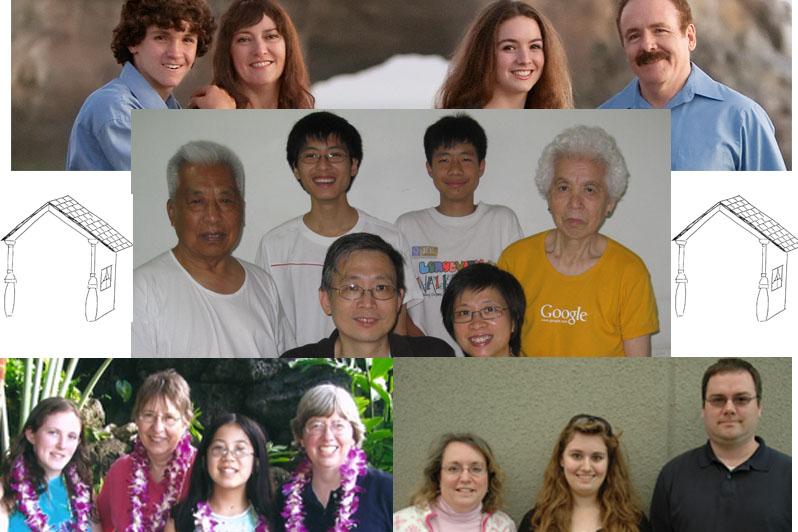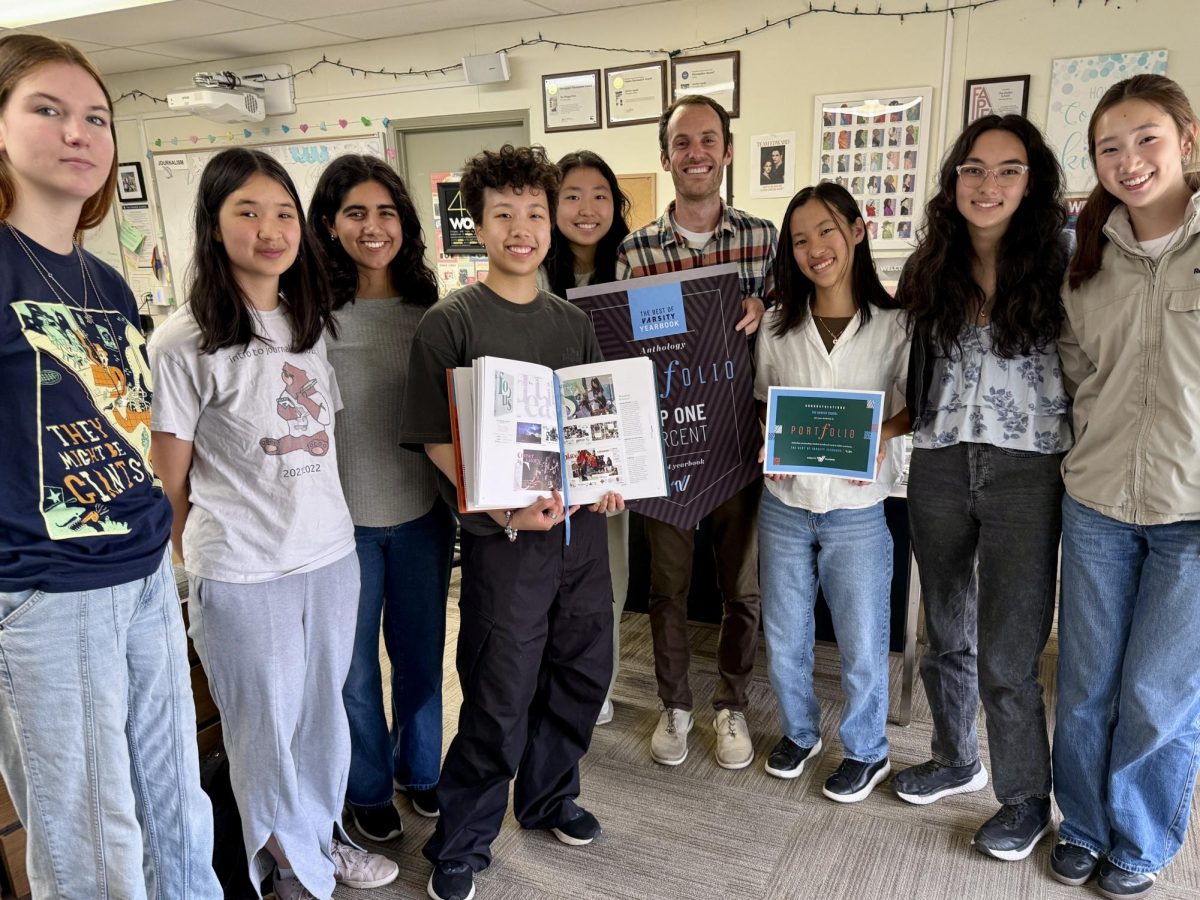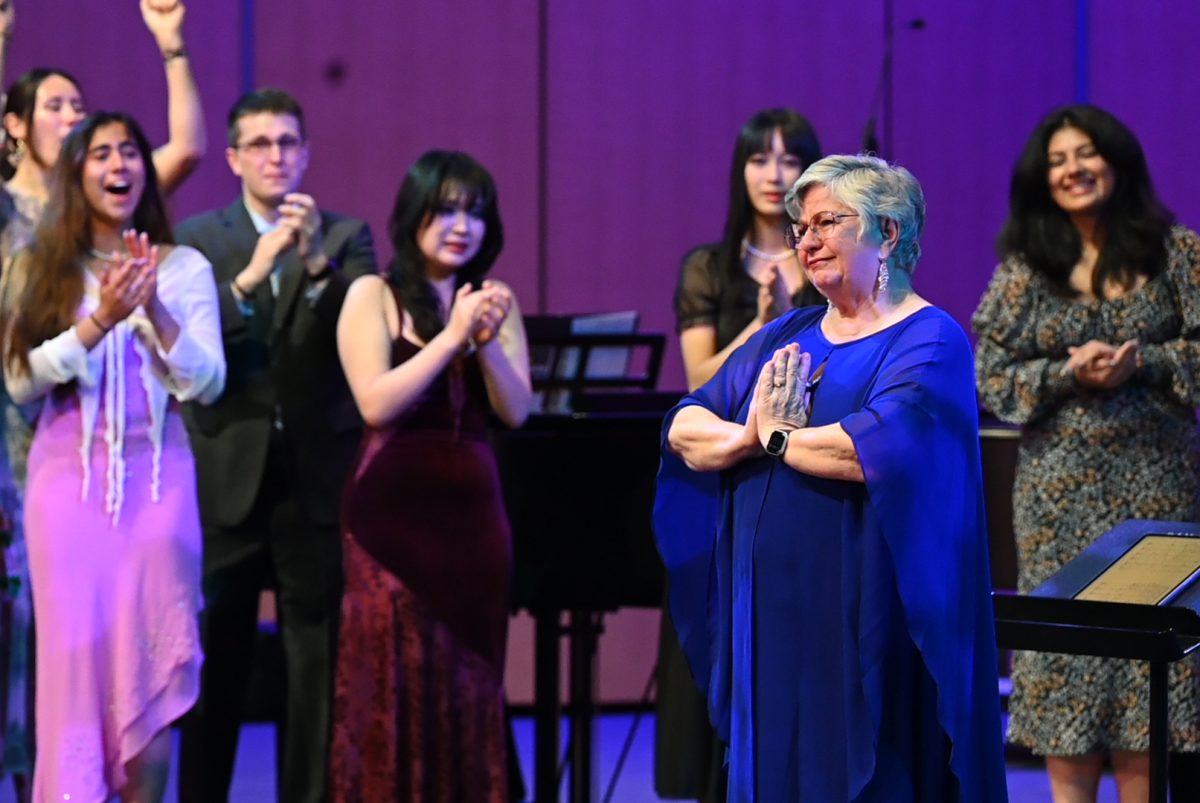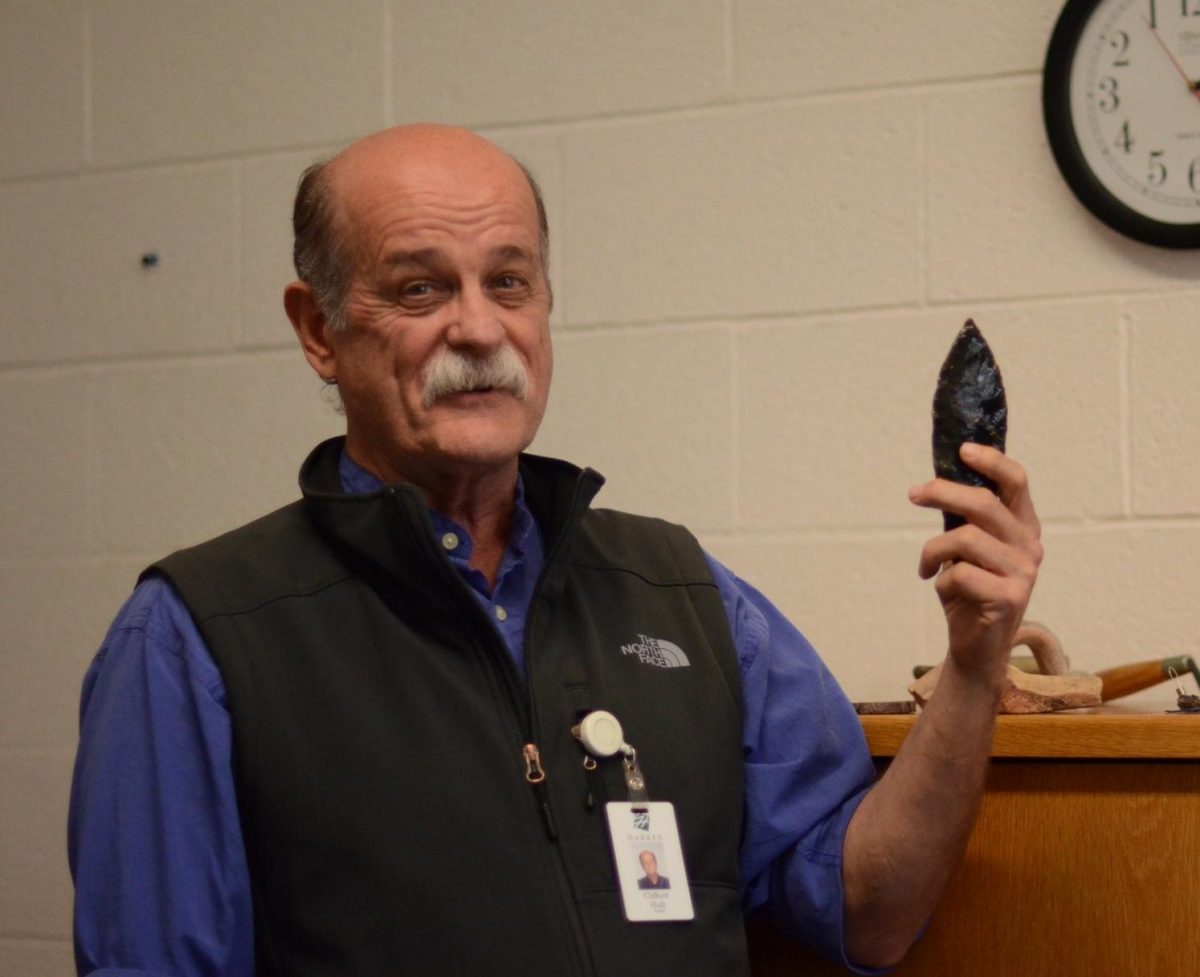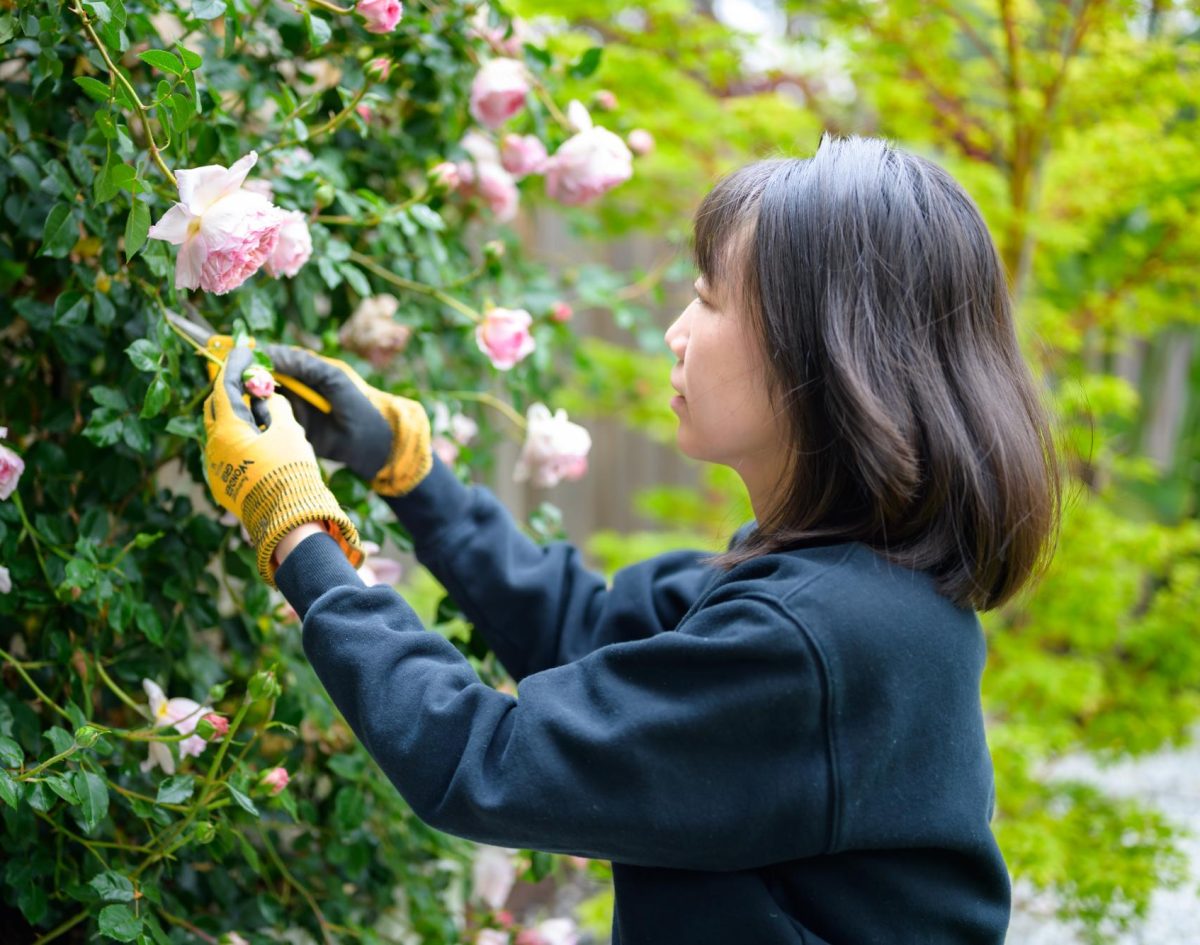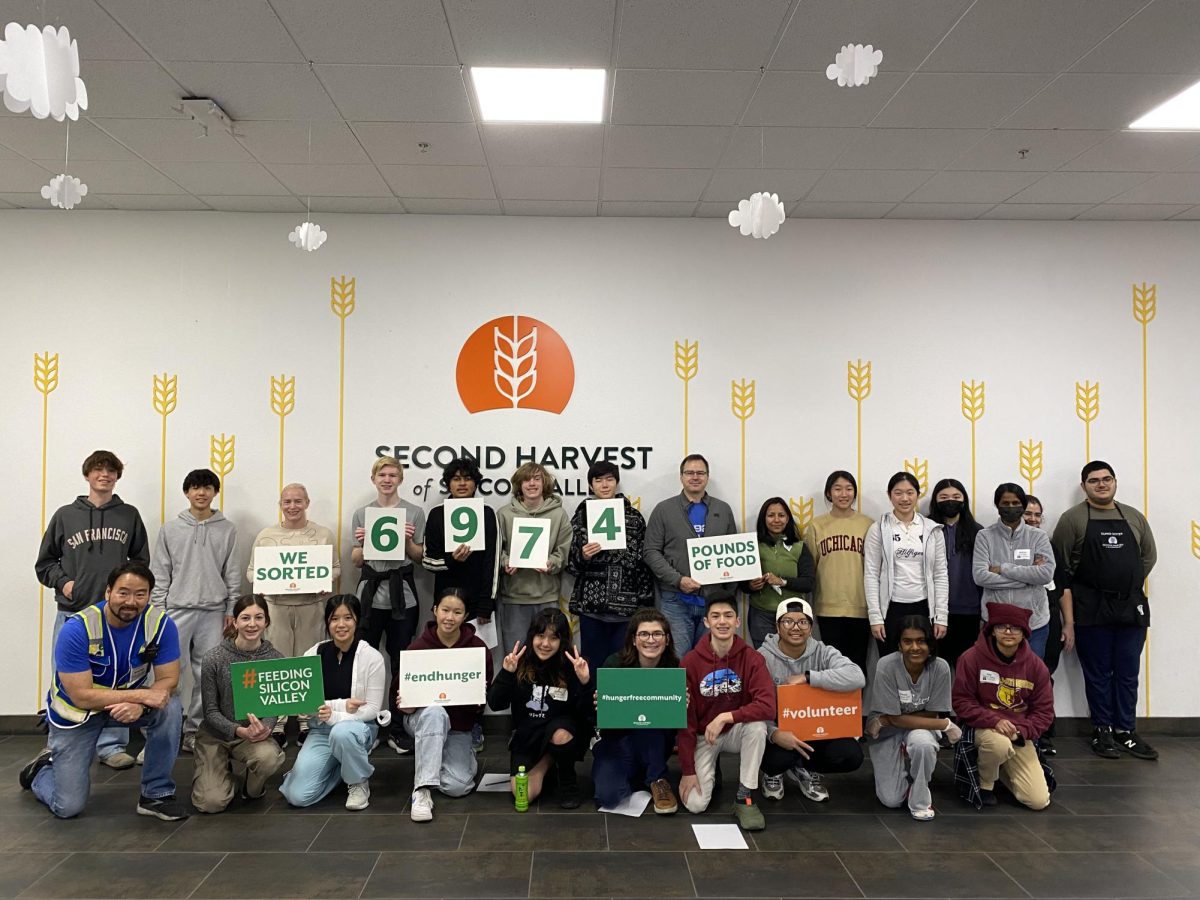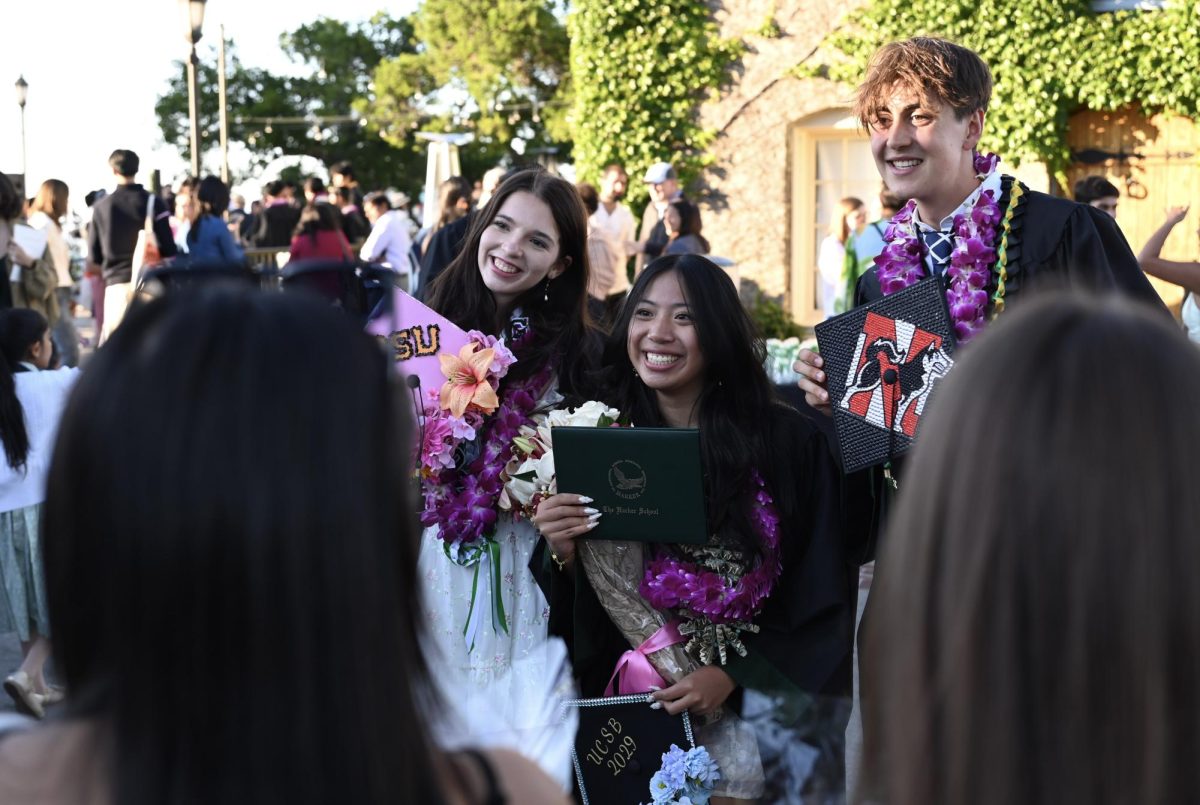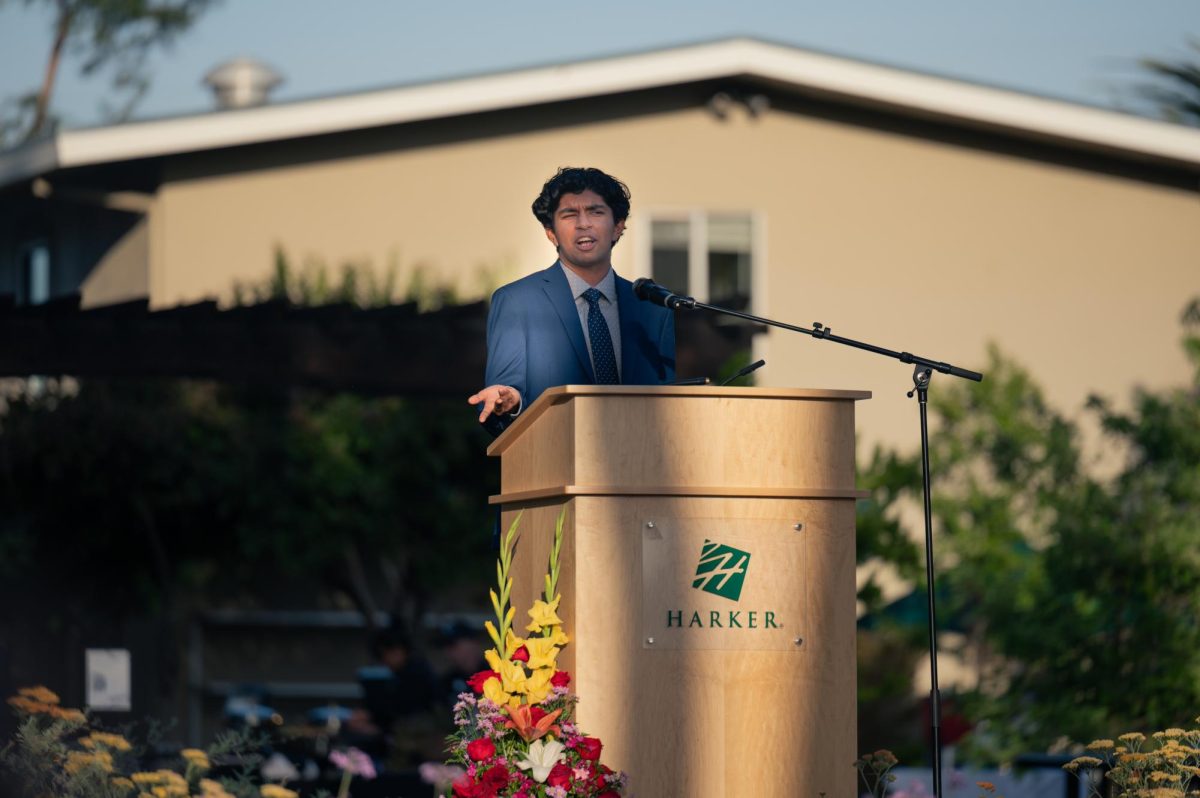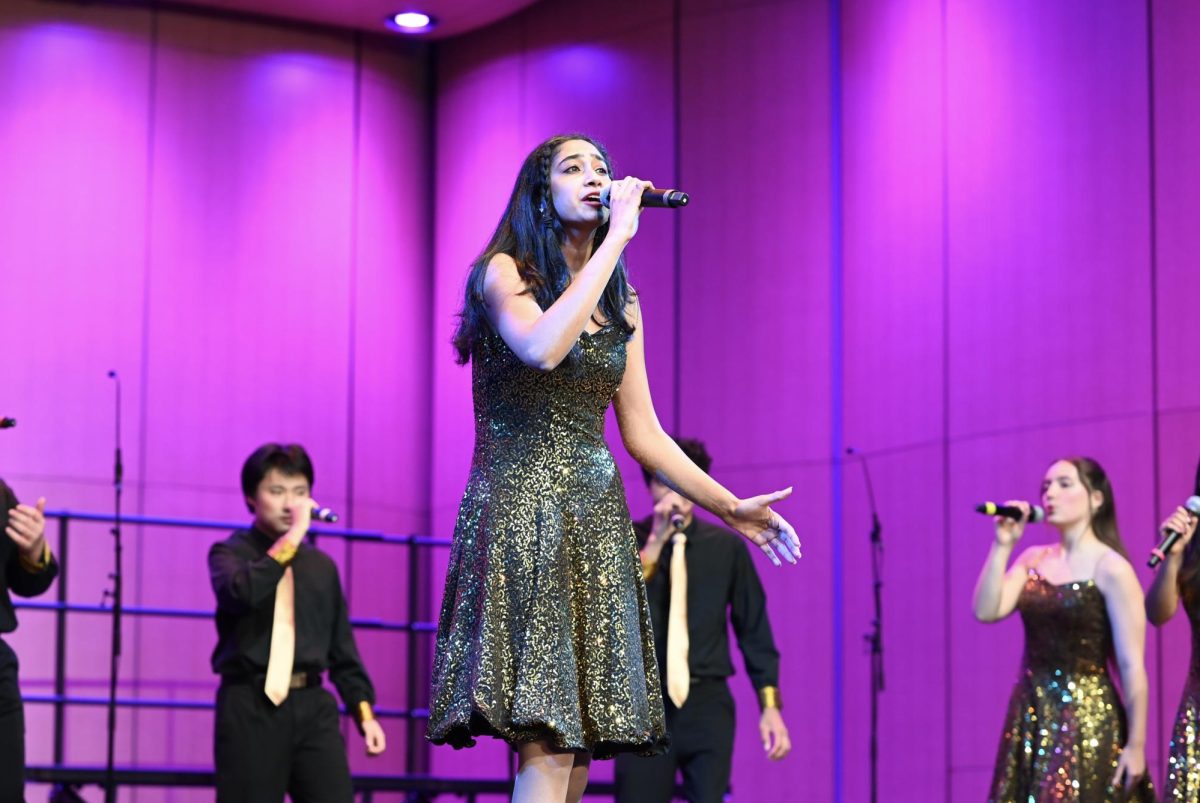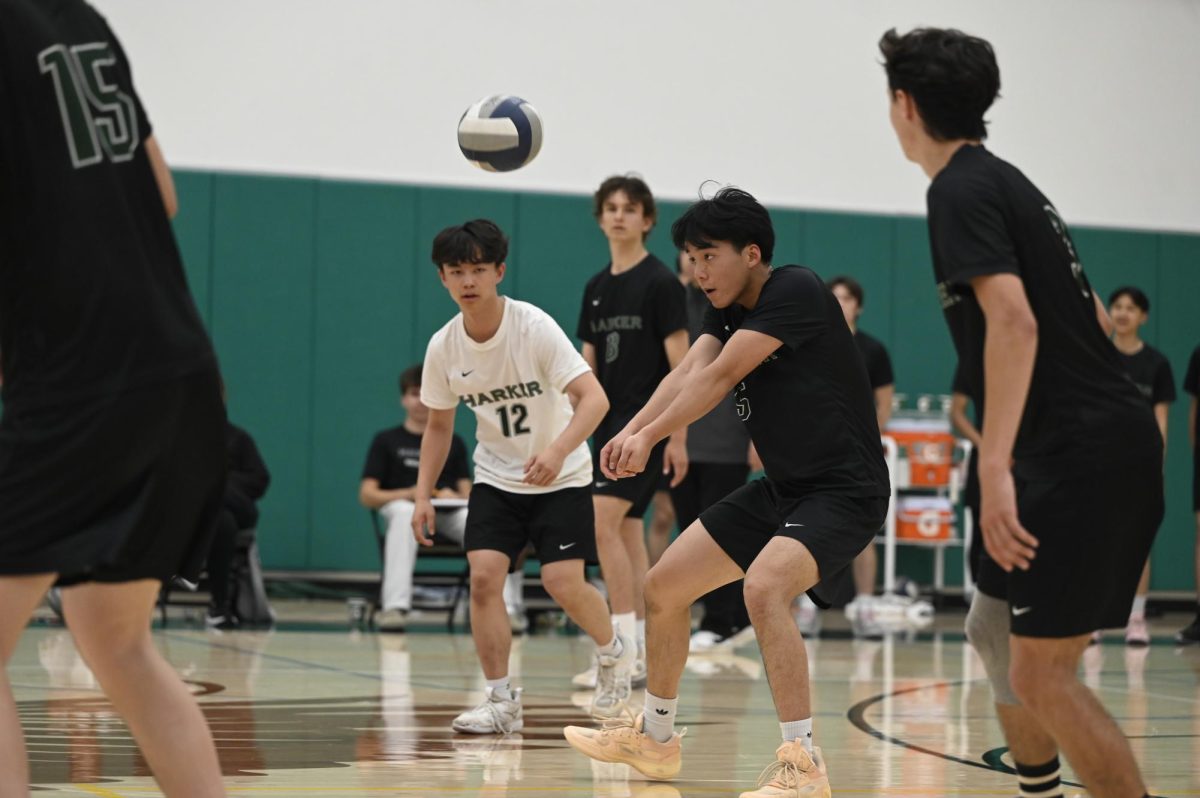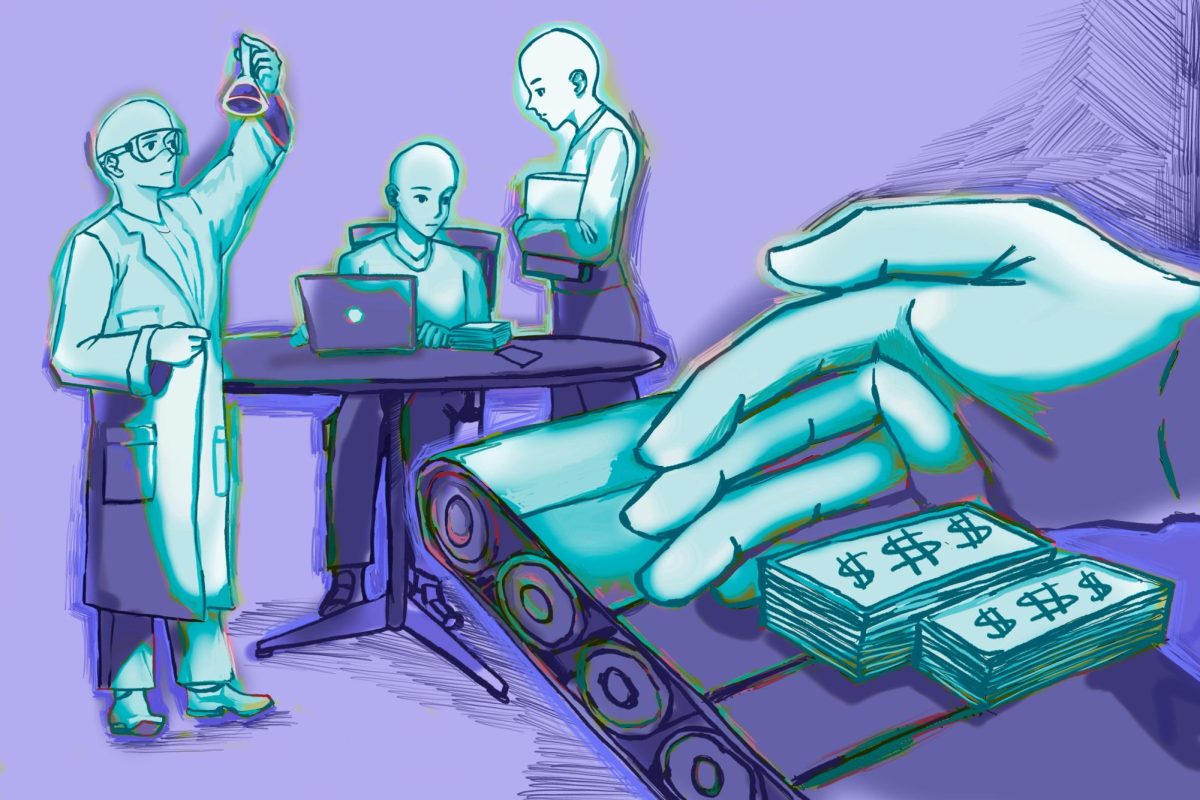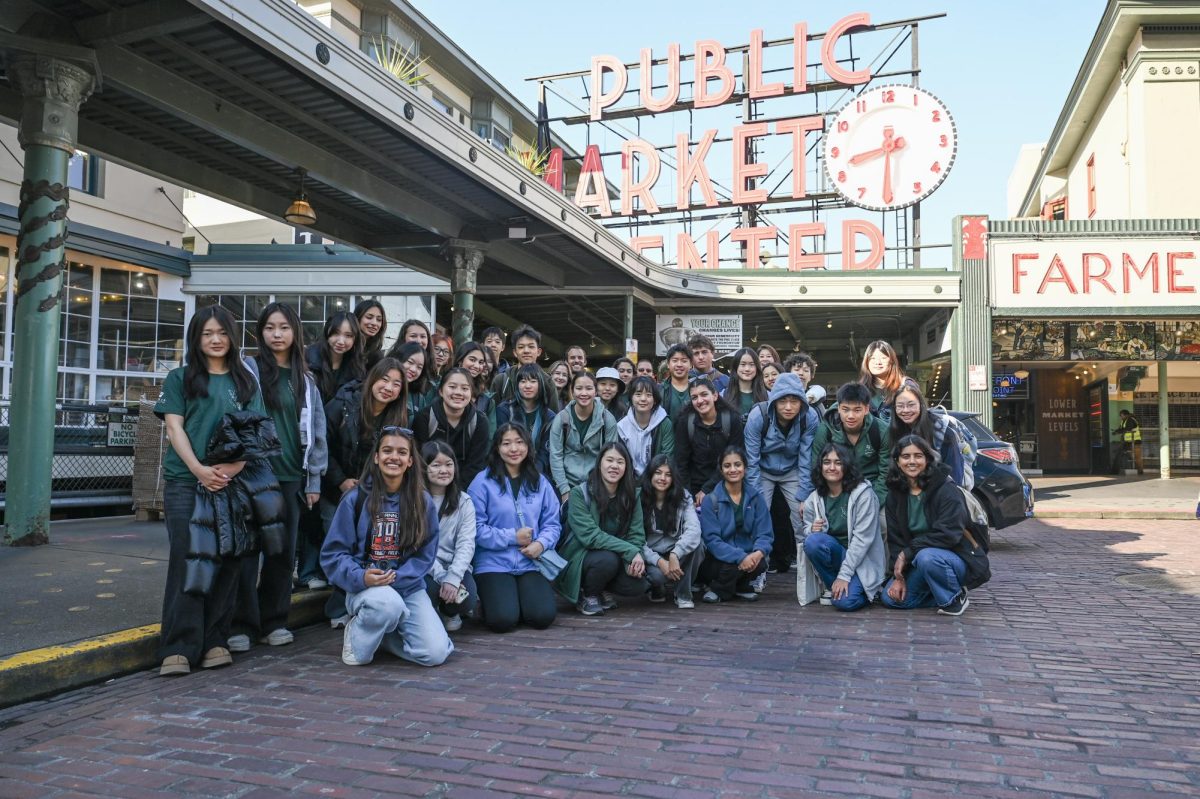No family is traditional, and in the openness of the 21st century, the American family dynamic is rapidly changing. In this school alone, various students have grown up with same-sex parents, dealt with divorce, and endured having family abroad, among other circumstances. The modern family can no longer be stereotyped into a cookie-cutter shape, and its new form consists of a group of people who simply live together and love each other, nothing more. Take a peek into the lives of five unique families.
All that Shelby Rorabaugh (9) knows of her birth parents is the note that they presumably wrote and attached to a blanket, detailing her birthday and Chinese name.
After she was born in 1994, Shelby was bundled in that blanket and abandoned on a street near a hospital in Wuhan, China. She lived in an orphanage for about six months before being adopted and brought to the United States to live with her two gay mothers, partners Mary Rorabaugh and Karen Coates.
A few years earlier, in 1991, the partners adopted Amy Rorabaugh (12) right after her birth in Chicago. The two girls have been attending this school since junior kindergarten.
“I would definitely want to meet [my real parents],” Shelby said. “It would be really special to finally know who gave birth to me, and I’ve always really wanted to know that.”
Amy, on the other hand, knows her birth mother and stepsiblings, and sees them once every few years. After her birth father, who Amy has never met, divorced her mother, there were not enough funds to care for Amy. Coates and Rorabaugh arranged the adoption before Amy was born.
“She didn’t want to [give me up], but she made the right decision. It’s better to have someone who can support your kid,” Amy said.
Life with two moms “doesn’t really bother me,” Shelby said. She has explained her adoption and family to others for as long as she can remember, so “it’s just a part of who I am.”
Likewise, Amy feels that when other people cannot accept homosexuality or adoption and “if they’re not going to like me just because of that, then forget them. That’s their problem. I’ve embraced it,” she said.
Coates and Rorabaugh, who have been together for more than 25 years, met at a gay function here in the Bay Area and decided to start a family together.
“Karen and I wanted a family larger than just us, and adoption was a great way to do that,” Rorabaugh said.
Similarly, Coates felt “it was not important that they be biologically related to us. There’s lots of kids out there that need homes.”
For Amy, growing up with two mothers has given her “a broader perspective. They’ve taught me not to be biased against gay people.”
Both girls also recognize that their parents partially assume conventional parental roles.
“Karen is more like the mom in the family – she does the cooking and cleaning, like the stereotypical mom would be these days,” Amy said. “Mary would be the one who works [all the time] but she’s still always there.”
With four girls in the house, Shelby and Amy feel they have a good relationship with their parents.
“We’re all very close, and we can all talk to each other if we have girl problems, so it’s actually pretty nice to have no guys in the house,” Shelby said. She thinks she has a “pretty normal sister-sister bond” with Amy. “We get into fights, but we’re pretty close.”
“We have in our family some very high values, like honesty and tolerance,” Coates said. “As a gay family, tolerance and understanding discrimination [are important]. We’re very sensitive about those issues.”
Shelby does not feel much of a connection to her Chinese heritage, aside from being born in China. When she went back to the Wuhan orphanage in fifth grade, she realized that her “life would have been a lot worse” if she stayed there, and she now feels “pretty privileged to have an education,” she said. “It all turned out for the better.”
“[We] may look different from the textbook nuclear family, but our day-to-day lives are the same,” Rorabaugh said. “We share a home and are creating the same common history as any family – celebrating successes, supporting each other during disappointments, laughing together, and generally just making each other better.”
Daniel Cho (11)
Imagine having a parent on a permanent business trip – that’s how Daniel Cho (11) has felt since he joined the school in seventh grade. His father, Don Cho, works in Seoul, South Korea and comes back to California for only two weeks after a couple of months abroad.
Cho exports computer chips to other technology companies in Korea, and the money he makes “gets the money for me to go to Harker,” Daniel said.
Though he speaks to his wife and son on the phone occasionally, Cho mainly communicates with Daniel through email.
“I definitely miss him a lot,” Daniel said. “My mom is my mom, but I need my dad.” Because Daniel does not have siblings, it is just him and his mother at home.
“We’re too busy [to spend time together] during school days, but when my dad comes it’s usually my break, so we can go on vacations together.”
Despite that, it is still difficult for Daniel’s mother, Jennifer Cho, to be a single parent for part of the time.
“It is sometimes difficult and stressful to raise Daniel on my own. Many times I wish my husband was here, especially when I get lonely staying here all by myself,” she said.
Daniel also participates actively in performing arts at school, and is a member of Downbeat. Because his father often is not in town for performances, “it’s a big disappointment,” Daniel said. “I usually only see my mom in the audience.”
“Whenever I can’t attend Daniel’s theater performances, [or] I can’t help my wife when she has certain troubles … I desperately want to quit my career and [come] back home immediately,” Cho said. “But the circumstance that I have – in reality, I can’t. It pains [me].”
Daniel feels he has not been able to get to know his father well enough. “It’s high school and it’s kind of a big deal,” Daniel said. “It would be better if he was here … I could have had the same relationship with my dad [as I have with my mom].”
Daniel feels that he has learned to become more independent and readied himself for the real world, and is still thankful for his situation.
“I think its really touching that he’s willing to do all of this so that I can go to Harker, to pay for all this. I feel really privileged,” Daniel said.
His mother feels similarly. “Sometimes I wish things could change, but then I think about how lucky we are as a family to send Daniel to such a good school,” Jennifer said. “That is when I think that all this is worth the pain.”
In a few months, Cho plans to begin working in California in a newer local branch of the same company, so the three will be together once again.
Daniel said his father’s absence “is like having a missing member of the family. It’s always better when he comes back – the family feels whole.”
“Trials can make life seem not worth living,” Cho said. Being thousands of miles away from his family has been a trial, but “we decide if we will learn the lesson taught,” he said. “I believe those lessons will help us to bind together more as a family.”
Alice Loofbourrow (11)
Growing up, Alice Loufbourrow (11) never lived in one place, always shuttling between her parent’s separate houses.
“I wasn’t particularly angry at my parents getting divorced,” Alice said. “To some degree I understood that it had to be that way because I remember them fighting when I was little.” Her parents divorced when she was four and a half years old.
After accepting that her parents were separated for good, she saw both advantages and disadvantages in her situation.
“My mom doesn’t let me IM, but my dad does. If my parents were married, I’d never be able to IM,” Alice said.
Her mother, Celia Feret, remarried when Alice was nine.
“Stepfamilies are, by definition, units of competing interests and that require acceptance of less than ideal conditions at times,” Feret said.
However, Alice found comfort in having stepsiblings. Her stepbrother Robert is 20 years old, and her stepsister, Sarah Feret, is only six months older than Alice.
“We are both at the same stage in our lives [so] we are both there for each other any time we need someone to talk to or some advice,” Sarah said.
Alice enjoys having someone so close in age to talk to, and also looks to her brother Robert as a role model.
This year, Alice decided to live with her father and spend summers with her mother’s family, and is relieved to have some more consistency in her life.
Alice is grateful that her parents’ divorce “wasn’t a bad one,” she said. Her father, Wayne Loofbourrow, additionally believes that it has helped Alice in some ways.
“[Divorce] has brought Alice a self-reliance and flexibility that has helped her in a variety of social situations,” Loofbourrow said. “Alice [has] the full support of both of her parents which helps mitigate the downside [of divorce].”
Feret also feels that the future is bright for Alice.
“Whereas a lot of parents are grieving at the thought of launching their child to go to college, I anticipate it with great joy,” Feret said. “For the first time since preschool Alice will be like everyone else.”
After enduring her parents’ divorce, Alice said, “I want to be sure the first time that whoever I marry is ‘the one.’ I don’t want to get a divorce [and] put my kids through this.”
David (9) and Nicole Lindars (12)
The Lindars are a close-knit family—their parents keep them academically focused and they play sports and sing on the side.
David plays three sports, and Nicole participates in vocal performing arts. Both deal with balancing schoolwork with extracurriculars and family time.
Nicole says she is closer to mother because her father is not around as often because of his work. David, on the other hand, enjoys talking about and watching sports with his father.
“David and I are pretty close,” Nicole said. “We don’t really fight like other siblings. Maybe it’s because of the age difference [three years] or the fact that he’s a boy and I’m a girl.”
David, more athletic than his sister, said his interests do not conflict with his sister’s involvement in performing arts, and that might be why they are closer than most.
“Because we’re not that similar, we don’t really fight over things. There’s not much in common,” he said.
Having Nicole drive him to and from school has brought them closer. “She drives me to and from school every day so we talk a lot in the car,” David said.
The Lindars siblings come from a large family, and traditionally meet at their grandmother’s house during the holidays. They also have a yearly summer pool party complete with white water rafting and inner tubing.
“My mom’s one of eight children so we have this big family gathering on Christmas,” Nicole said.
“I’m the second youngest kid, [so] it’s really fun,” David said.
One of the things Nicole values most is her family’s ease and lightheartedness.
“We’re very relaxed. We love to joke around and play tricks on each other. I’ve found some pretty weird things in my backpack over the years: lemons, a can of tuna fish, etc,” she said.
“We were part of the tree planting ceremony when the Bucknall campus first opened and have been so happy to have been a part of the Harker School community for the past 13 years,” Betsy Lindars, their mother, said.
As a senior, Nicole complained that nearly every day last summer, she would wake up to her parents talking about colleges. But now, as college draws near, Nicole says she will miss her brother.
She said, “I’m going to miss talking to my brother every day. He’s honestly the funniest guy I know, especially when he’s around my dad. Those two are hilarious together!”
Chun Man Chow (10)
A foreign language, an unfamiliar school system, a different culture – and a new home environment. Chun Man Chow (10), who up until this year had lived with his parents and brother in Hong Kong, moved to San Jose in 2009 and now lives here with his paternal grandparents.
Though his grandparents, Ngung Ying Tsui and Yee Leung Chow, do not speak English, they have lived in the Bay Area for more than ten years. Cantonese was Chun Man’s first language, so he finds it easy to communicate.
“Every time I go home, I start speaking in Cantonese,” Chun Man said. “Life is quite good; I’m close to them.”
Chun Man decided himself to move to America. A recent change in the education system in Hong Kong would require him to take a new public examination, and many universities may not recognize it, he said. Chun Man wants to attend college in the United States regardless.
“[Here], I have to do more housework, but we live in separate rooms so it’s more private,” Chun Man said. “My grandparents don’t interfere much with my stuff.” According to Chun Man, Tsui and Chow are very happy that he is living with them, and they believe that America provides a better environment and greater range of opportunities for their grandson.
On the other hand, “life in America is so different.” In Hong Kong, Chun Man traveled everywhere by public transportation, but here “it takes a long time [to go anywhere].” Because his grandparents do not drive, Chun Man walks to school every morning from their nearby apartment and gets rides from his uncle when needed.
“Living in the United States, even if you live in the city, is nothing like Hong Kong,” his older brother Chun Ho said. “I think that he is still trying to adapt to that lifestyle. We as brothers are pretty independent, so I don’t really miss him that much.”
Chun Man’s mother and brother still live in Hong Kong. Chun Ho, age 16, will take exams in Hong Kong and then hopes to come to America for college next fall. The three of them video chat on weekends to stay in touch, and although Chun Man’s family “supports strongly his decision to study in America,” his mother Angela Kwok said, “we miss him so much.”
Chun Man’s father, Ferdinand Chow, died of cancer in the fall of 2009. Chun Man went to Hong Kong for four weeks in October and November to be with his father during his sickness and then attend the funeral.
“It’s hard sometimes [without my father], but I just concentrate on other stuff, so not to think a lot about it,” Chun Man said. His father, Ferdinand Chow, completed an internet-based project earlier that produced enough money for three years’ worth of tuition here.
In Wah Yan College, the all-boys Jesuit school that Chun Man attended in Hong Kong, students spoke Cantonese all the time and followed the British school system.
“We [didn’t] have so much work to do there, [although] we took 15 courses each year,” Chun Man said. He had less coursework in Hong Kong because final exams counted for nearly 80 percent of each grade.
Kwok is “glad that Chun Man can join the big family of Harker with the support and caring from all his teachers and school administrators,” she said. “He enjoys the school life and is settling well in America.”
Nonetheless, “[school here] is hard to cope with at first. There’s so much work, and there’s tests every day, and it’s new to me,” Chun Man said. But “it’s a good experience because here the teachers help us a lot. The language is new, and it’s a hard time, [but] I think I’m fitting in.”


















![“[Building nerf blasters] became this outlet of creativity for me that hasn't been matched by anything else. The process [of] making a build complete to your desire is such a painstakingly difficult process, but I've had to learn from [the skills needed from] soldering to proper painting. There's so many different options for everything, if you think about it, it exists. The best part is [that] if it doesn't exist, you can build it yourself," Ishaan Parate said.](https://harkeraquila.com/wp-content/uploads/2022/08/DSC_8149-900x604.jpg)




![“When I came into high school, I was ready to be a follower. But DECA was a game changer for me. It helped me overcome my fear of public speaking, and it's played such a major role in who I've become today. To be able to successfully lead a chapter of 150 students, an officer team and be one of the upperclassmen I once really admired is something I'm [really] proud of,” Anvitha Tummala ('21) said.](https://harkeraquila.com/wp-content/uploads/2021/07/Screen-Shot-2021-07-25-at-9.50.05-AM-900x594.png)







![“I think getting up in the morning and having a sense of purpose [is exciting]. I think without a certain amount of drive, life is kind of obsolete and mundane, and I think having that every single day is what makes each day unique and kind of makes life exciting,” Neymika Jain (12) said.](https://harkeraquila.com/wp-content/uploads/2017/06/Screen-Shot-2017-06-03-at-4.54.16-PM.png)








![“My slogan is ‘slow feet, don’t eat, and I’m hungry.’ You need to run fast to get where you are–you aren't going to get those championships if you aren't fast,” Angel Cervantes (12) said. “I want to do well in school on my tests and in track and win championships for my team. I live by that, [and] I can do that anywhere: in the classroom or on the field.”](https://harkeraquila.com/wp-content/uploads/2018/06/DSC5146-900x601.jpg)
![“[Volleyball has] taught me how to fall correctly, and another thing it taught is that you don’t have to be the best at something to be good at it. If you just hit the ball in a smart way, then it still scores points and you’re good at it. You could be a background player and still make a much bigger impact on the team than you would think,” Anya Gert (’20) said.](https://harkeraquila.com/wp-content/uploads/2020/06/AnnaGert_JinTuan_HoHPhotoEdited-600x900.jpeg)

![“I'm not nearly there yet, but [my confidence has] definitely been getting better since I was pretty shy and timid coming into Harker my freshman year. I know that there's a lot of people that are really confident in what they do, and I really admire them. Everyone's so driven and that has really pushed me to kind of try to find my own place in high school and be more confident,” Alyssa Huang (’20) said.](https://harkeraquila.com/wp-content/uploads/2020/06/AlyssaHuang_EmilyChen_HoHPhoto-900x749.jpeg)



